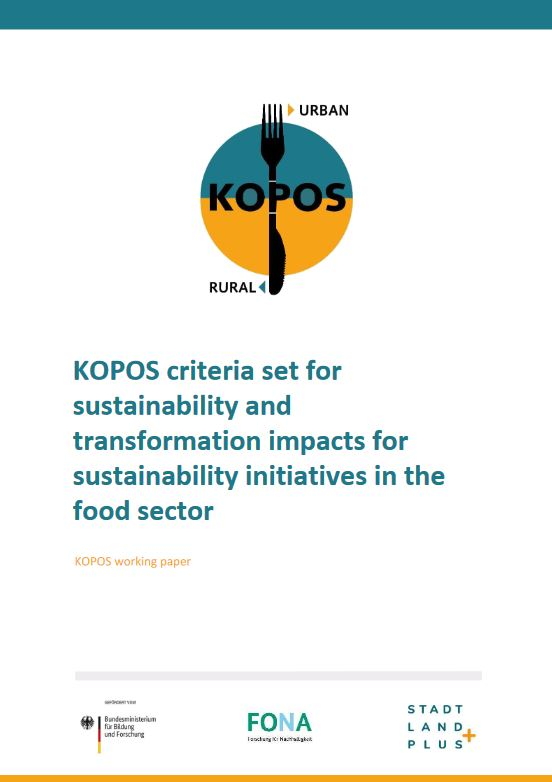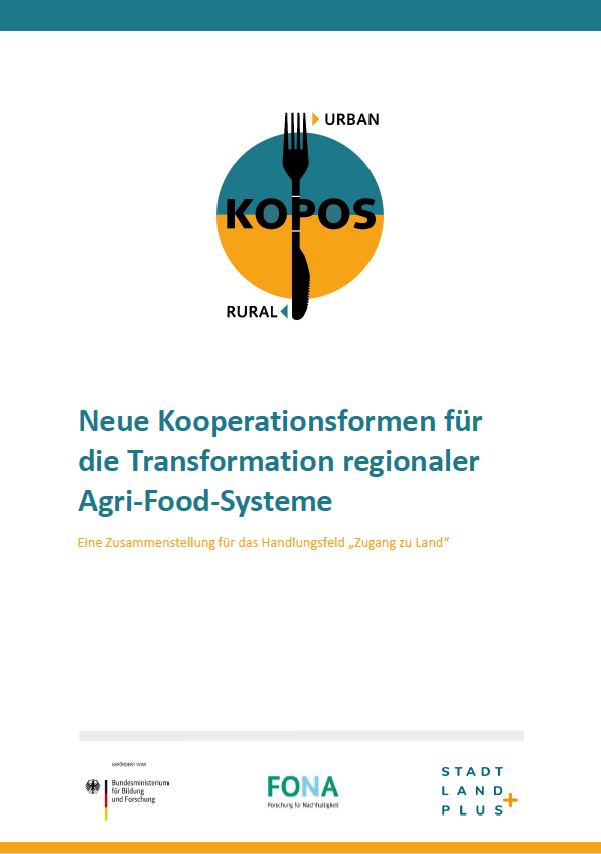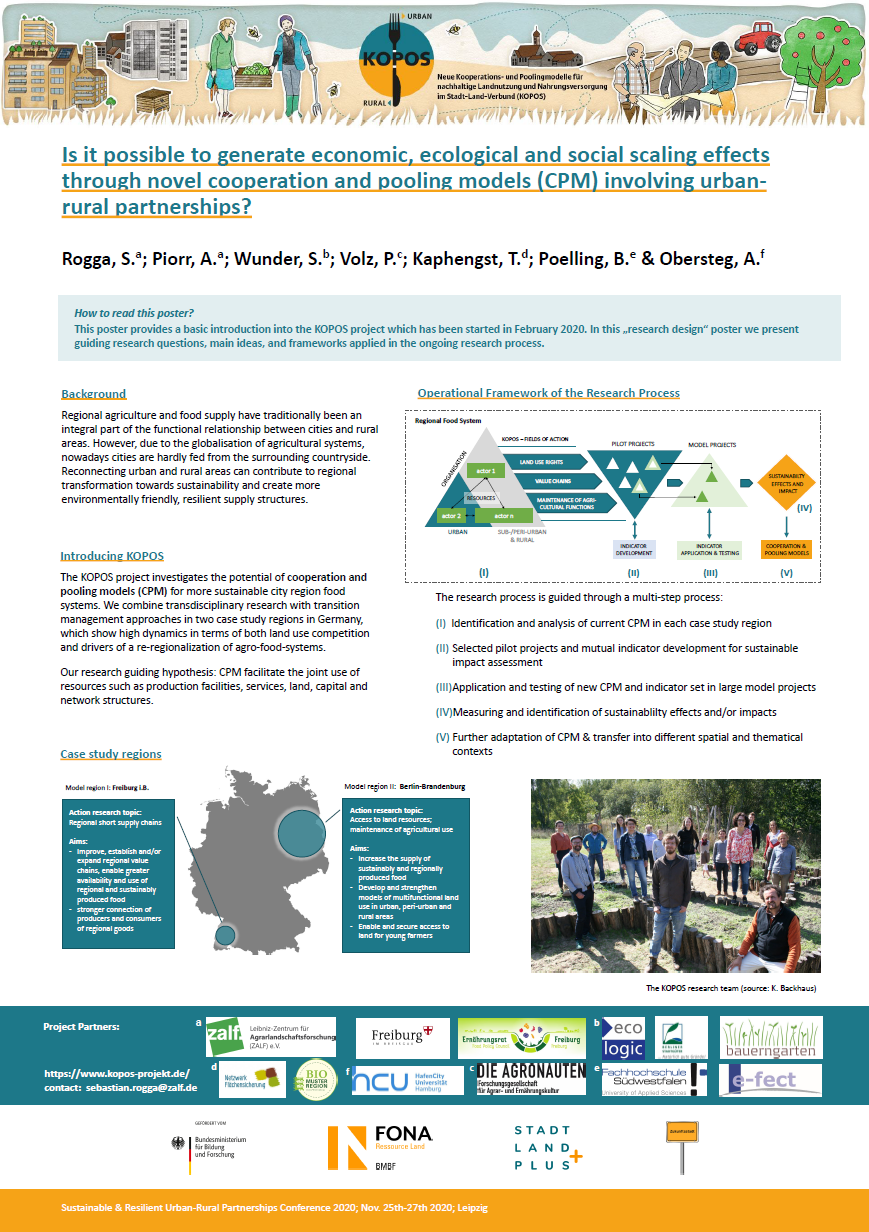KOPOS Criteria Set for Sustainability and Transformation Impacts for Sustainability Initiatives in the Food Sector
- Publication
- Citation
Rogga, S.; Wunder, S.; Piorr, A. (2024). KOPOS Criteria Set for Sustainability and Transformation Impacts for Sustainability Initiatives in the Food Sector. KOPOS Working Paper. Müncheberg. 20 S.
The KOPOS criteria set serves to make the sustainability and transformation impacts of initiatives in the food sector measurable and visible. It provides a basis for evaluating and improving the sustainability of projects, and is useful both for initiatives themselves and for institutions wishing to promote sustainability projects. In addition to the actual set of criteria, this working paper provides an introduction and a derivation of the criteria.
Methodological approach of the KOPOS criteria set
The criteria set is based on a comprehensive analysis of existing cooperation and pooling approaches with the aim of supporting sustainable developments in the food sector. It aims to cover a wide range of sustainability initiatives, from seed cooperatives to composting projects, and provides criteria rather than indicators to enable a flexible and broadly applicable approach to assessing sustainability impacts.
Application and benefits of the criteria set
The criteria set is a tool for sustainability initiatives to self-assess, measure success and communicate their sustainability impacts. It also supports funding bodies in identifying and evaluating projects worthy of funding. By providing concrete criteria and indicators, it helps to make the goals of sustainability tangible and to increase the recognition of sustainability-promoting activities.
Challenges and future directions
Despite the comprehensive approach of the criteria set, there are challenges in capturing the full thematic breadth of sustainability initiatives and in developing criteria that adequately describe transformational impacts. The authors emphasize the importance of further refining the criteria set to increase its applicability and effectiveness in promoting sustainable transformation in the food sector.






